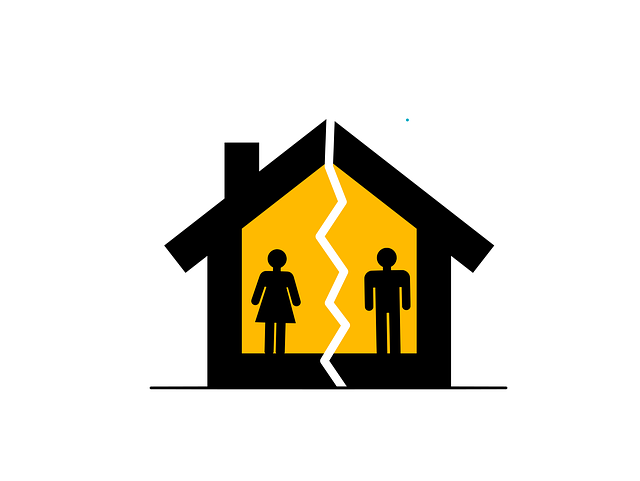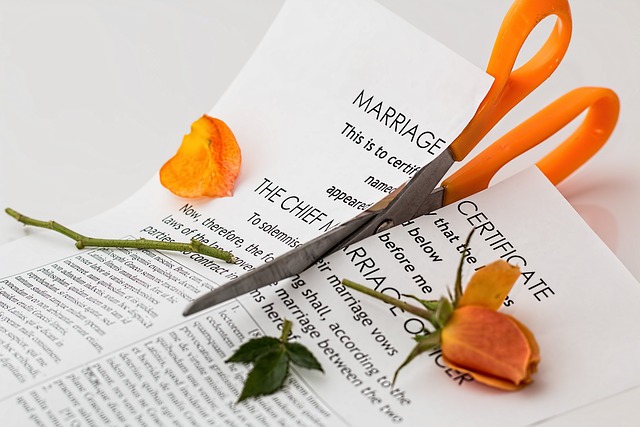
Marriage is a partnership that thrives on mutual respect, communication, and understanding. But when these elements begin to deteriorate, it can create a strain in the relationship. Recognizing the signs of an unhealthy marriage, preparing for divorce, and navigating the healing process afterward are all essential steps for individuals facing marital struggles.
1. Signs of an Unhealthy Marriage
An unhealthy marriage often exhibits clear signs that both partners may either ignore or dismiss, leading to long-term damage. Addressing these issues early can sometimes help save the relationship, but if left unchecked, they can pave the way to separation.
1.1. Lack of Communication
Healthy communication is fundamental in any relationship. In an unhealthy marriage, this communication becomes strained, minimal, or filled with conflict. Partners may avoid discussions, withhold feelings, or communicate in ways that lack respect and consideration. When communication breaks down, misunderstandings fester, which can lead to resentment.
1.2. Constant Criticism and Contempt
If one or both partners are regularly criticizing each other or showing contempt, it’s a sign of deep dissatisfaction. These behaviors erode trust and affection, often leaving partners feeling undervalued or attacked. Sarcasm, eye-rolling, or even dismissive comments are signs of contempt that can lead to emotional disconnect.
1.3. Emotional or Physical Distance

Emotional distance is one of the key indicators of trouble in a marriage. When partners stop sharing their feelings or lose interest in spending time together, it shows a growing gap in emotional intimacy. Physical intimacy may also decrease, further highlighting the growing rift.
1.4. Financial Dishonesty
Money issues are a common source of tension in marriages. Financial dishonesty, such as hiding purchases, keeping secret accounts, or lying about expenditures, can build distrust. This betrayal can severely damage the foundation of trust required for a healthy relationship.
1.5. Repeated Conflicts without Resolution
Every marriage has its share of disagreements, but how conflicts are resolved is crucial. In an unhealthy marriage, couples might have the same arguments repeatedly without ever resolving the underlying issues. This cycle of unresolved conflict only intensifies the dissatisfaction.
2. How to Prepare for a Divorce
Divorce is a significant life decision that can bring emotional, financial, and legal challenges. Preparing for a divorce means facing these issues with a clear and focused approach.
2.1. Emotional Readiness

Divorce brings with it an emotional toll, whether it was a mutual decision or not. Preparing emotionally involves coming to terms with the end of a relationship, acknowledging feelings of grief, anger, or disappointment, and seeking support when necessary. Therapists or support groups can help manage the emotional strain.
2.2. Financial Preparation
Divorce can have significant financial implications. It’s important to gather financial documents such as tax returns, bank statements, property deeds, and other relevant financial records. Understanding the financial situation allows both parties to approach settlement negotiations with a clearer view of what assets and debts need to be divided.
2.3. Legal Considerations
Before starting the divorce process, consulting a lawyer to understand legal rights is crucial. Legal counsel will help you navigate issues such as child custody, property division, spousal support, and other legal matters that arise in divorce. Many individuals also find mediation helpful to reach amicable settlements without a prolonged court battle.
2.4. Child Custody and Co-Parenting Plans
If children are involved, preparing for divorce means making decisions about their future well-being. Creating a co-parenting plan that focuses on the children’s best interests ensures that their emotional needs are prioritized during the transition. Clear communication between both parents about schedules, responsibilities, and emotional support is key.
3. Divorce Recovery and Healing
Moving on after divorce requires a conscious effort to heal emotionally, rebuild self-esteem, and create a new sense of normalcy.
3.1. Allowing Time for Healing
Divorce is often compared to a death — the death of a relationship, shared dreams, and the family unit. It’s natural to grieve this loss, and it’s important to allow time for this process. Jumping into new relationships or major life changes can delay emotional healing, so giving yourself space to process the emotions is essential.
3.2. Focusing on Self-Care
One of the most effective ways to recover from divorce is by prioritizing self-care. This includes eating healthily, exercising, pursuing hobbies, and practicing mindfulness or meditation. These activities help restore mental and physical well-being, making it easier to transition to a new life.
3.3. Building a Support System
Lean on friends, family, or support groups who can provide encouragement and a listening ear. It’s important to avoid isolation during this time, as having a network of people who understand your journey can be incredibly comforting and empowering.
3.4. Rediscovering Yourself
Divorce often means stepping into a new phase of life. Rediscovering personal interests, exploring new hobbies, or even pursuing a career change can be a transformative way to embrace this new chapter. Use this period to focus on personal growth and development, reigniting passions that may have been neglected during the marriage.
3.5. Co-Parenting after Divorce
If children are involved, learning to co-parent effectively is critical to ensuring their emotional well-being. It’s important to maintain open lines of communication with your ex-spouse, even if the relationship is strained. Consistency, fairness, and respect for boundaries will help your children adjust to their new family dynamic.
Conclusion
Navigating the difficult path of an unhealthy marriage, preparing for divorce, and eventually healing afterward is a challenging journey. Recognizing the signs of a troubled marriage, taking the steps to protect yourself legally and emotionally, and embracing the healing process afterward are essential for moving forward. Divorce is not the end, but rather the beginning of a new chapter that can lead to personal growth, self-awareness, and eventually, peace.
This process requires patience and self-compassion, but with the right strategies, support, and mindset, individuals can emerge stronger and more fulfilled

